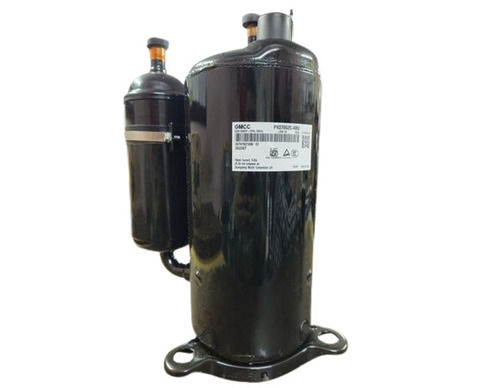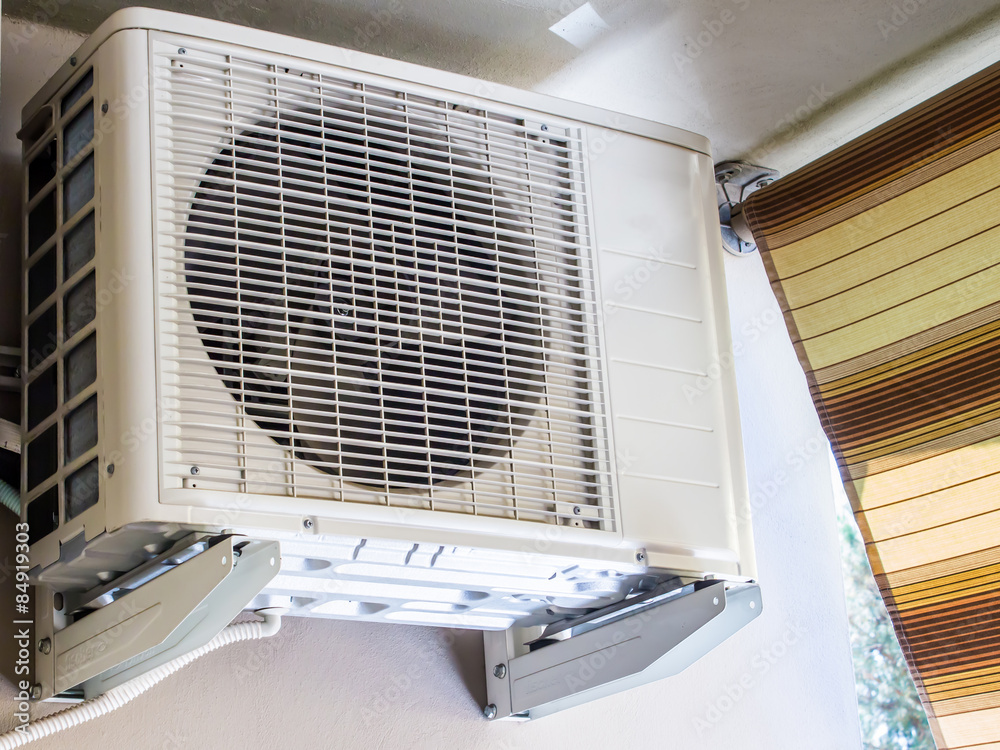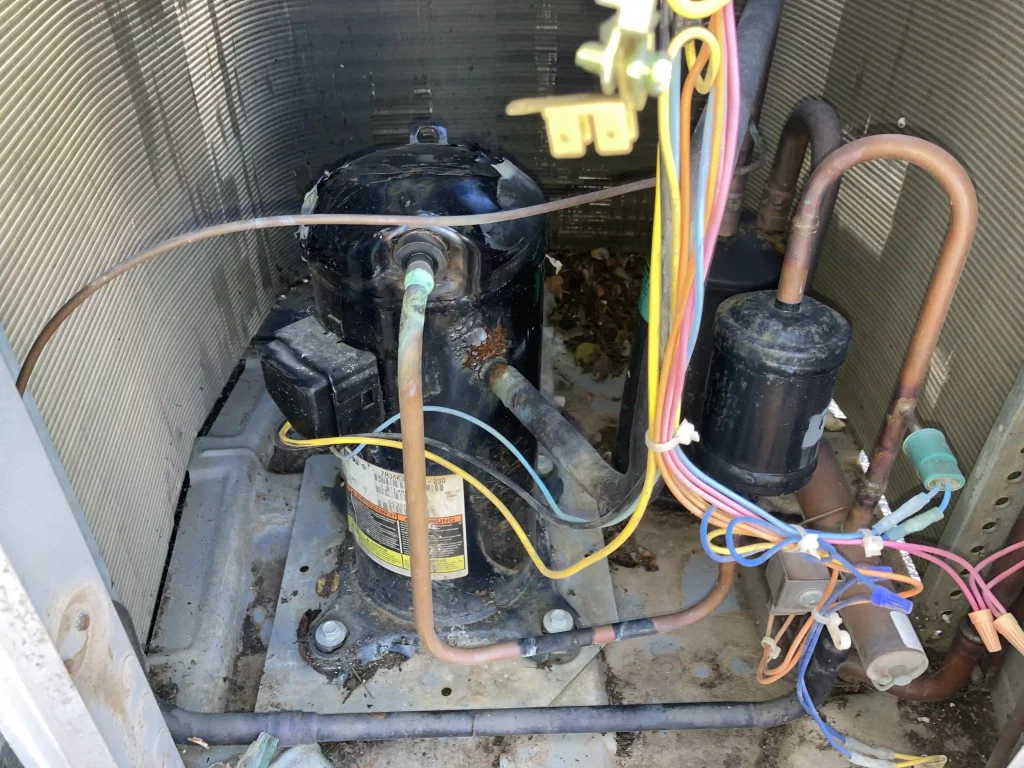Air Compressor For Air Conditioning Unit

The air compressor is the heart of any air conditioning system. Without it, the cooling process grinds to a halt. For HVAC professionals, understanding the intricacies of air compressors is paramount – from diagnosing malfunctions to performing repairs and replacements. This comprehensive guide delves into the world of air conditioning compressors, covering types, operation, troubleshooting, career implications, and future trends. Whether you're a student just starting out, a seasoned technician, or an employer looking for qualified personnel, this information is designed to equip you with the knowledge you need.
The Vital Role of the Air Compressor in AC Systems
The air compressor's primary function is to compress refrigerant gas, increasing its pressure and temperature. This high-pressure, high-temperature refrigerant then flows through the condenser coil, where it rejects heat to the outside air. The refrigerant, now in a high-pressure liquid state, proceeds to the expansion valve or metering device, where its pressure is reduced, causing it to cool significantly. Finally, the cold, low-pressure refrigerant flows through the evaporator coil, absorbing heat from the indoor air and providing cooling. This cycle repeats continuously, facilitated by the efficient operation of the air compressor.
Types of Air Conditioning Compressors
Different air conditioning systems utilize various compressor types, each with its own strengths and weaknesses:
- Reciprocating Compressors: These compressors use a piston moving back and forth within a cylinder to compress the refrigerant. They are commonly found in smaller residential AC units and are known for their relatively low cost and simple design. However, they can be noisy and less efficient than other types.
- Rotary Compressors: Rotary compressors use a rotating component to compress the refrigerant. Two main types exist: rotary vane and rotary scroll. These compressors are generally quieter and more efficient than reciprocating compressors, making them popular in window units and smaller split systems.
- Scroll Compressors: Scroll compressors feature two interleaved spiral scrolls, one fixed and one orbiting. As the orbiting scroll moves, it compresses the refrigerant. Scroll compressors are highly efficient and reliable, making them a common choice for residential and commercial AC systems. They are known for their smooth operation and quiet performance.
- Screw Compressors: Screw compressors use two meshing screws to compress the refrigerant. They are typically used in large commercial and industrial applications due to their high capacity and efficiency. Screw compressors can handle large volumes of refrigerant and are known for their durability.
- Centrifugal Compressors: Centrifugal compressors use an impeller to accelerate the refrigerant gas, increasing its pressure. These compressors are used in very large commercial and industrial HVAC systems, such as those found in hospitals, office buildings, and manufacturing plants. They are capable of handling extremely large volumes of refrigerant.
Diagnosing Air Compressor Problems
A malfunctioning air compressor can lead to a complete AC system failure. HVAC technicians need to be proficient in diagnosing compressor issues. Common problems include:
- Electrical Failures: This includes issues with the compressor motor, wiring, and capacitors. A multimeter can be used to check for continuity and voltage.
- Mechanical Failures: These can involve worn-out bearings, damaged pistons or scrolls, and refrigerant leaks. Unusual noises, such as grinding or hissing, can indicate mechanical problems.
- Refrigerant Issues: Overcharging or undercharging the system with refrigerant can strain the compressor and lead to premature failure. Proper refrigerant levels are crucial for efficient operation.
- Contamination: Dirt, moisture, and other contaminants in the refrigerant can damage the compressor. Regular filter replacements and system maintenance are essential to prevent contamination.
- Overheating: Insufficient airflow, dirty coils, or a malfunctioning fan can cause the compressor to overheat. Overheating can lead to compressor failure and other system problems.
Using diagnostic tools like pressure gauges, multimeters, and refrigerant leak detectors is essential for accurate troubleshooting.
Best Practices for Troubleshooting
Before diving into repairs, always follow these best practices:
- Ensure power is safely disconnected before working on the compressor.
- Use appropriate personal protective equipment (PPE), including gloves and eye protection.
- Refer to the manufacturer's service manual for specific instructions and troubleshooting procedures.
- Properly recover refrigerant before opening any sealed system components, adhering to EPA regulations.
- Keep meticulous records of all diagnostic and repair procedures.
Air Compressor Repair and Replacement
Depending on the severity of the issue, an air compressor may need to be repaired or replaced. Minor electrical problems, such as a faulty capacitor, can often be repaired. However, major mechanical failures typically necessitate compressor replacement. Replacing a compressor involves several steps:
- Refrigerant Recovery: Recover all refrigerant from the system using EPA-approved equipment.
- Disconnecting the Compressor: Disconnect the electrical wiring and refrigerant lines from the old compressor.
- Installing the New Compressor: Install the new compressor, ensuring proper alignment and secure connections.
- Evacuation and Charging: Evacuate the system to remove air and moisture, then charge it with the correct amount of refrigerant.
- Testing: Test the system to ensure proper operation and refrigerant levels.
Proper brazing techniques are crucial when connecting refrigerant lines. It’s critical to use nitrogen purging during brazing to prevent oxidation and contamination within the system. Always use OEM (Original Equipment Manufacturer) parts or approved equivalents to ensure compatibility and performance.
Career Paths in HVAC Focusing on Air Conditioning Compressors
A strong understanding of air conditioning compressors opens doors to various career paths within the HVAC industry:
- HVAC Technician: Entry-level positions involve assisting experienced technicians with installations, repairs, and maintenance. Median salary: $51,390 per year (Bureau of Labor Statistics, May 2023). Job outlook: Projected to grow 6% from 2022 to 2032, about as fast as the average for all occupations.
- HVAC Service Technician: Focuses on diagnosing and repairing HVAC systems, including air compressors. Service technicians often work independently and require strong troubleshooting skills. Salary can range from $55,000 to $75,000 per year depending on experience and location.
- HVAC Installer: Installs new HVAC systems, including the installation of air compressors and related components. Experience with brazing, wiring, and refrigerant handling is essential. Salary range: $45,000 to $65,000 per year.
- HVAC Maintenance Technician: Performs routine maintenance on HVAC systems to prevent breakdowns and ensure efficient operation. This includes inspecting and servicing air compressors. Salary range: $40,000 to $60,000 per year.
- HVAC Design Engineer: Designs HVAC systems for buildings, including selecting the appropriate air compressor type and size. This role requires a strong understanding of thermodynamics, fluid mechanics, and building codes. Salary range: $70,000 to $100,000+ per year. Requires a bachelor's degree in mechanical engineering or a related field.
- HVAC Sales Engineer: Sells HVAC equipment and services to commercial and industrial clients. A strong technical understanding of air compressors and other HVAC components is essential for effectively communicating the benefits of different products. Salary range: $60,000 to $90,000+ per year, often with commission-based earnings.
Certifications and Training
Obtaining relevant certifications enhances career prospects and demonstrates competence to employers.
- EPA Section 608 Certification: Required for anyone who handles refrigerants. This certification covers proper refrigerant handling procedures, leak detection, and recovery techniques.
- NATE (North American Technician Excellence) Certification: Demonstrates competency in specific HVAC areas, such as air conditioning, heating, and commercial refrigeration. NATE-certified technicians are highly sought after by employers.
- HVAC Excellence Certification: Another widely recognized certification program that assesses HVAC technicians' skills and knowledge.
- Manufacturer-Specific Training: Many HVAC equipment manufacturers offer training programs on their specific products. These programs can provide valuable knowledge and skills for working with specific compressor types and systems.
Continuing education is essential for staying up-to-date with the latest technologies and industry trends. Consider attending workshops, seminars, and online courses to enhance your skills and knowledge.
Industry Trends and the Future of Air Conditioning Compressors
The HVAC industry is constantly evolving, and several trends are shaping the future of air conditioning compressors:
- Variable Speed Compressors: Inverter-driven compressors, also known as variable speed compressors, are becoming increasingly popular due to their energy efficiency and ability to precisely match cooling output to demand. These compressors can significantly reduce energy consumption and improve comfort.
- Eco-Friendly Refrigerants: The industry is transitioning towards refrigerants with lower global warming potential (GWP) to reduce environmental impact. HFOs (Hydrofluoroolefins) and natural refrigerants like CO2 and propane are gaining traction.
- Smart HVAC Systems: Integration with smart home technology and building automation systems is becoming more common. Smart HVAC systems can optimize energy consumption, improve comfort, and provide remote monitoring and control capabilities.
- Predictive Maintenance: Utilizing sensors and data analytics to predict compressor failures and schedule maintenance proactively is gaining momentum. This can reduce downtime and extend the lifespan of equipment.
- Emphasis on Energy Efficiency: Rising energy costs and increasing environmental awareness are driving demand for more energy-efficient air conditioning systems. This is leading to the development of more efficient compressor designs and technologies.
Staying informed about these trends is crucial for HVAC professionals to remain competitive and provide cutting-edge solutions to their clients. For example, technicians who are proficient in working with variable speed compressors and eco-friendly refrigerants will be in high demand.
Real-World Examples of HVAC Career Paths
Consider these examples of successful HVAC professionals and their career journeys:
- Maria Rodriguez: Started as an HVAC apprentice, obtained her EPA 608 and NATE certifications, and is now a lead service technician for a commercial HVAC company, specializing in centrifugal chillers.
- David Lee: Graduated with a degree in mechanical engineering, worked as an HVAC design engineer for several years, and now owns his own HVAC consulting firm.
- Sarah Chen: Began as an HVAC installer, received training on variable speed compressor technology, and now works as a field service technician for a major HVAC equipment manufacturer.
These examples illustrate the diverse range of opportunities available in the HVAC industry and the importance of continuous learning and professional development.
Advice for Employers Hiring HVAC Technicians
When hiring HVAC technicians, consider the following:
- Prioritize Certifications: Look for candidates with EPA 608 and NATE certifications, as well as any manufacturer-specific training.
- Assess Technical Skills: Conduct practical skills assessments to evaluate candidates' ability to diagnose and repair air conditioning compressors and other HVAC components.
- Emphasize Soft Skills: Communication, problem-solving, and customer service skills are essential for HVAC technicians who interact with clients.
- Offer Competitive Compensation and Benefits: Attract and retain top talent by offering competitive salaries, health insurance, retirement plans, and paid time off.
- Provide Training and Development Opportunities: Invest in ongoing training and development to ensure that your technicians stay up-to-date with the latest technologies and industry trends.
By focusing on these factors, employers can build a highly skilled and motivated workforce that can provide exceptional HVAC services to their clients.
Conclusion
The air compressor is a critical component of any air conditioning system, and a thorough understanding of its operation, troubleshooting, and repair is essential for HVAC professionals. By investing in training, certifications, and continuous learning, HVAC technicians can advance their careers and contribute to the growth and success of the industry. Employers who prioritize hiring skilled and knowledgeable technicians will be well-positioned to meet the growing demand for HVAC services and provide exceptional value to their customers. The HVAC industry offers rewarding and fulfilling career paths for individuals who are passionate about technology, problem-solving, and providing comfort and energy efficiency to homes and businesses. Staying informed about industry trends, embracing new technologies, and prioritizing professional development are key to success in this dynamic and ever-evolving field.










